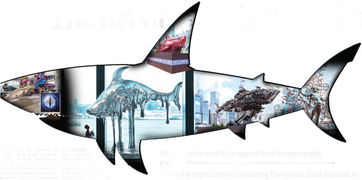In the serene embrace of nature, few activities offer the same level of tranquility and satisfaction as fishing. Whether you're a seasoned angler or a beginner eager to cast your line into the unknown, mastering the art of fishing in your hometown pond can be a deeply rewarding experience. In this article, we delve into the various techniques and tips that can help you improve your fishing skills and make the most out of your time on the water.
Understanding Your Pond
Before you can start fishing effectively, it's essential to understand the dynamics of your hometown pond. This includes its size, depth, types of fish present, and the best spots to fish. Here are some key factors to consider:
Size and Depth: Larger ponds tend to have more diverse fish populations, while deeper areas can be more productive for certain species. Understanding the size and depth of your pond will help you determine where to cast your line.
Fish Species: Research the types of fish that inhabit your pond. Different species may require different bait and techniques. For instance, bass often prefer live bait, while catfish may be more attracted to cut bait or nightcrawlers.
Best Spots: Observe the pond to identify areas where fish are likely to congregate. This could be near structures like fallen trees, rocks, or submerged vegetation, or in areas where the water temperature is more favorable.
Choosing the Right Equipment
The right equipment can significantly impact your fishing experience. Here's a guide to selecting the appropriate gear:
Rod and Reel: Choose a rod and reel that match the type of fishing you'll be doing. For instance, a spinning rod and reel are versatile and suitable for a variety of fish species.
Line: The type of line you use depends on the fish species and the environment. Monofilament is popular for its strength and flexibility, while fluorocarbon is known for its invisibility to fish.
Bait and Lures: Select baits and lures that are known to attract the fish in your pond. Live bait, such as worms or minnows, can be effective, but artificial lures can also be very successful.
Fishing Techniques
Once you have the right equipment, it's time to apply some fishing techniques:
Patience and Timing: Fishing is a waiting game. Patience is key, and understanding the fish's feeding patterns can help you know when to be more active.
Cast with Precision: Practice your casting to ensure you can reach your desired spots without spooking the fish. A gentle, accurate cast is often more effective than a forceful one.
Bait Presentation: Whether you're using live bait or artificial lures, the way you present your bait can make a significant difference. Experiment with different retrieves or presentations to see what works best.
Reading the Water: Pay attention to how the fish react to your bait. If they show interest but don't bite, try changing your technique or moving to a different spot.
Handling Fish: Once you've caught a fish, handle it gently to minimize stress. Use a net if possible, and be mindful of the fish's fins and scales.

Advanced Techniques
For those looking to take their fishing to the next level, here are some advanced techniques:
Trolling: This involves slowly dragging a lure or bait behind a moving boat. It can be effective for catching fish that are spread out or deeper in the water.
Fly Fishing: While not as common in ponds, fly fishing can be a fun and challenging way to fish. It requires a different set of skills and equipment.
Night Fishing: Some fish are more active at night, and night fishing can offer a unique experience. Just be sure to check local regulations regarding night fishing.
Conclusion
Fishing in your hometown pond can be a delightful way to connect with nature and enjoy a peaceful pastime. By understanding your pond, choosing the right equipment, and applying effective techniques, you can enhance your fishing experience and potentially increase your chances of success. Remember, the key to becoming a master fisherman is practice, patience, and a willingness to learn from each outing. So, grab your rod, reel, and bait, and head out to your favorite pond to start honing your skills. Happy fishing!












